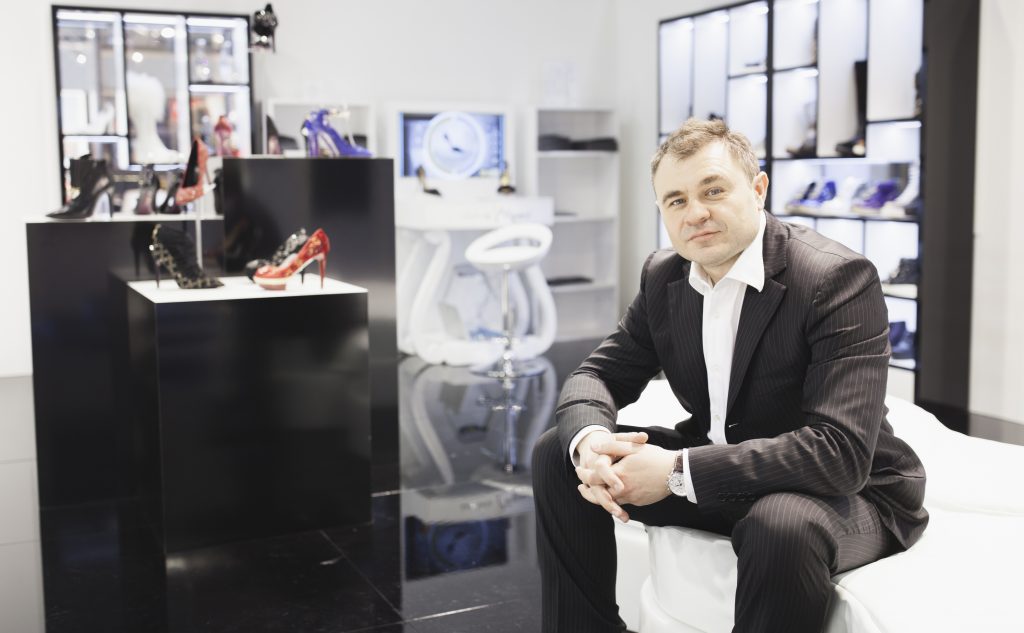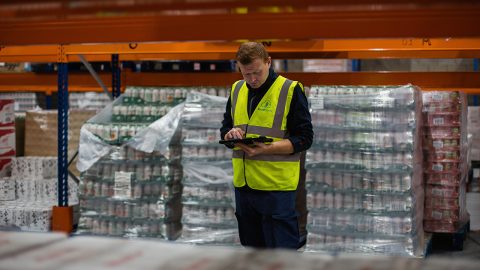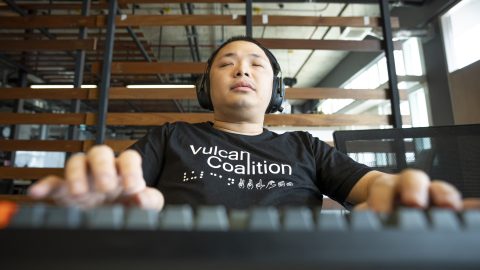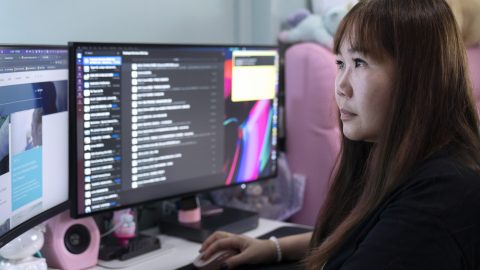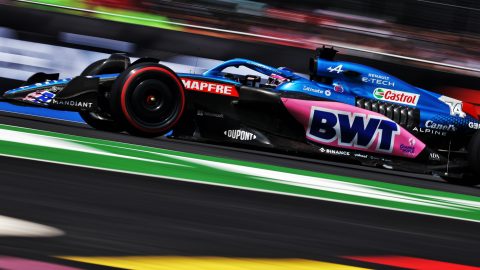Is tech the new black? Andrey Golub believes AI and VR can make brick-and-mortar shopping fashionable again
You want a pair of shoes, but you don’t want them to look like everyone else’s. You want them to be a different fabric, suede not leather. You want a different color, red not gray. You want a higher heel, not a standard 2- or 3-inch version.
You search the internet until you find some options that could work. But you wish that you could see that shade of red with your own eyes, touch the material, walk on the actual heel. Instead, you cross your fingers, place your order and hope that what lands on your front porch is what you envisioned.
Many of us are used to buying shoes and clothes this way now, and initial sales results from the recent holiday season reflect how much we’ve embraced online shopping. Online sales reached $3.34 billion on Black Friday alone. But that affinity for shopping from home continues to have a serious impact on brick-and-mortar retailers.
One Milan-based startup wants to help change that dynamic. The idea: Draw shoppers who want more from their apparel into stores by letting them customize what they want to buy, see and touch the materials in person, and confer with a salesperson (if they want) before they order.
In today’s retail fashion world, “Customers are tired of being constrained to buy what is available in stores,” says Andrey Golub, co-founder and CEO of ELSE Corp., named one of “The 10 Startups Redefining Italian Fashion” by Forbes last spring. “They come to a store, and their attitude is, ‘If we find something, maybe it’s good, maybe it’s not so good, but if it’s discounted, maybe I will buy it.’”
That approach, he says, is not exciting or good for customers – and definitely not beneficial for retailers and brands looking to build customer loyalty.
To describe Golub as passionate about this is to do disservice to the word “passionate.” Born in Kazakhstan, he has lived in Italy for more than a decade. He is both a fashionista and a technologist, a former professor of digital retail strategy who also has a Ph.D. in artificial intelligence – and a fervor to upend the world of retail fashion at a time when it needs it more than ever.
“In-Store Declines Drag Down Traditional Retailers,” “A Horrible Holiday Season” and “Unhappy New Year” were just some recent headlines pointing to clothing retailers’ woes. Consumers, especially those under age 40, are increasingly interested in more personalized goods and services, and they’re also looking for clothes that are made of higher-quality materials.
Golub’s company has developed a system of “virtual retail,” which he also calls “no-stock retail,” for customers, companies, brands and manufacturers. The goal: To give customers not only what they want, but desire, when it comes to clothing and shoes by offering customized apparel.
“Technology-driven innovation and shifts in consumer behavior are pushing brands to create retail experiences that are more appealing, less time-consuming and more personalized,” Golub says. “Personalization is really the driving influence,” and it “gives consumers an unprecedented level of control in every step of the creative process.”
It’s a business transformation, and a psychological and physical shift, moving from the “old and outdated business and operational models,” Golub says. He would replace ready-to-wear lines, seasonal clothing and sales that cut the prices of existing and sluggish inventory with “made to order as a new model.”
E.L.S.E. (Exclusive Luxury Shopping Experience) is the company’s cloud-based, software-as-a-service platform for virtual retail and shopping, and Golub says it can be integrated into any retail apparel environment to sell customizable, made-to-order products.
E.L.S.E.’s infrastructure is built on Azure and other Microsoft products, and is easily integrated into any company’s IT solution. E.L.S.E.’s middle-ware and front-end solution leverages an Azure module as a “Universal 3D product configurator,” as ELSE Corp. calls it, to aid in visualization and personalization. Soon, it will also be available using Microsoft HoloLens.
ELSE Corp. is a member of Microsoft BizSpark, a global program that helps startups succeed by giving them free access to Microsoft Azure cloud services, software and support.
Here’s how ELSE Corp.’s system works in a clothing store: A customer walks up to its “Virtual Brand Corner,” which is a physical area located within the store. Artificial intelligence (AI) and virtual reality tools then scan the customer’s measurements. The customers can touch real product samples to choose materials, accessories and colors. And they can see how a garment will actually look on them because they can view a realistic, 3D virtual image of the product they’ve selected.
Historically, such customization was a “niche service,” Golub says.
“Of course, you could always order a made-to-measure jacket or suit from a brand that you could pay extra for, but it was a super exclusive service,” he says. “Now, technology changes that. We can scan the body. We can visualize in 3D the products, how they’ll look, and find the best fit. We can let the customer see different combinations of products – the color, the materials, you can touch them in the store, decide which one looks better on you, and the assistant will give you style advice.”
It can take a few weeks, or perhaps a little longer, between the time a garment is ordered and when the customer receives it, and while that might not offer the almost-instant gratification of online shopping, Golub believes the quality and custom nature of the end result are worth the wait. Brands like Michela Rigucci, Thierry Rabotin and sustainable footwear brand Fera Libens have already embraced the new approach.
Golub says many apparel manufacturing companies in countries like Italy, France, Portugal, Spain and the United Kingdom are ready for the union of fashion and technology. “They might already be producing for other companies and suppliers,” he says, but “with retail hurting worldwide,” this gives manufacturers another way to be successful.
We want to help a customer in a totally different way, where there is a possibility for a customer to discover and to find an ideal product.
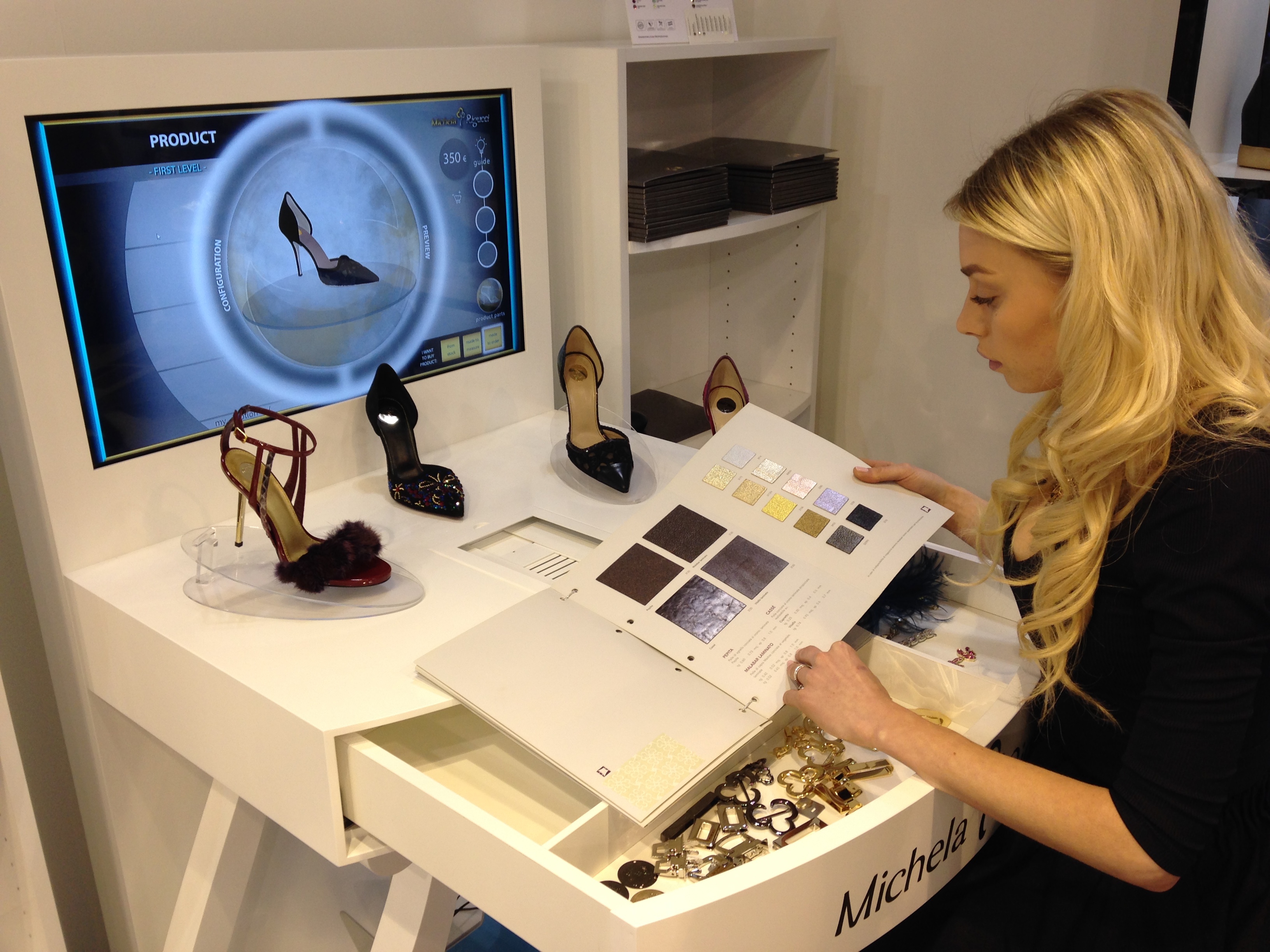
Combining greater personalization in tandem with AI was highlighted as being significant for retailers in a story, “What Lies Ahead for the Apparel Industry in 2017,” in a recent issue of Apparel, an industry publication.
“The savviest retailers are taking advantage of advancements in machine learning, deep analytics and AI for a more targeted and personalized shopping experience,” Emily Bezzant of the retail technology company EDITED wrote in the piece.
An example of that is Nordstrom, known for its legendary customer service, which has partnered with Shoes of Prey, an Australian-based company that enables customers to design their own shoes. There are now Shoes of Prey Design Studios located within some Nordstrom stores.
Sebastian DiGrande, Gap Inc. executive vice president and strategy and chief customer officer, says retails stores will not only survive, but thrive – based on differentiation.
Speaking at the recent FinTech Ideas Festival, attended by some of technology’s most respected forward-thinkers and leaders from the financial services industry, DiGrande said technology will play a key role in enriching and customizing the store experience “but ultimately in service to delighting the customer, deepening that ongoing relationship and connecting with her all the way through that journey with the brands that we have.”
For Golub, it’s about “going back to being good to the customer,” one of the most tried-and-true principles in retail.
“Selling customized products is a totally different approach than online retail,” he says. “Our focus is not on what is already produced for clothing, but what will be produced. The mission of e-commerce companies is to find a customer for products that already exist. We say, we want to help a customer in a totally different way, where there is a possibility for a customer to discover and to find an ideal product.”
Video courtesy of ELSE Corp. To learn more, visit the company’s video library.
Top photo: Andrey Golub, CEO and co-founder of ELSE Corp. (Photo courtesy of ELSE Corp.)

